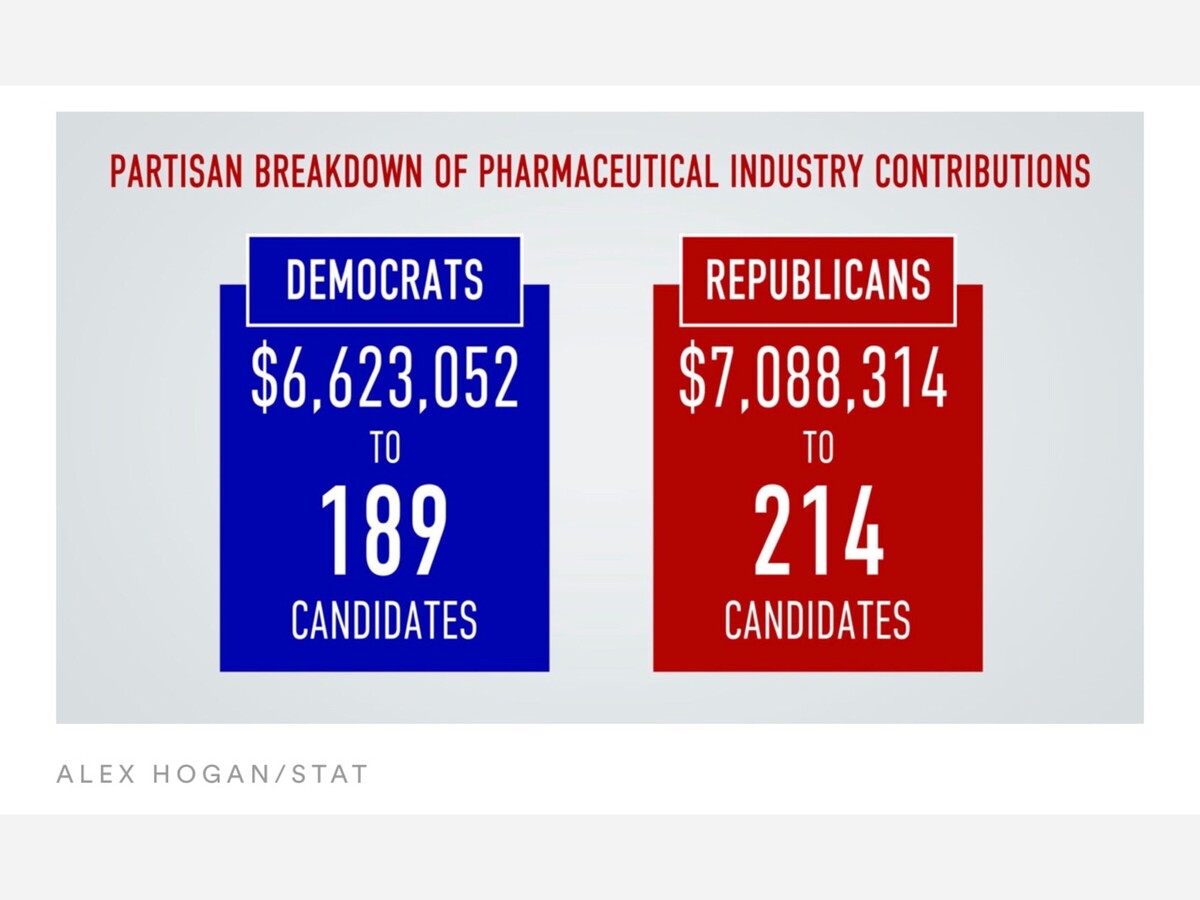Image

Why do a majority of Republicans in Congress oppose Cannabis when legalization of marijuana is no longer a fringe issue?
Over the past twenty years, there has been a huge rise in support for legalization. Polls over the past year from Quinnipiac and Gallup and others show that roughly 7 in 10 American adults think the use of cannabis should be legal, double the share who thought so 20 years ago.
Follow the Money!
Seventy-two U.S. senators accepted donations from the pharmaceutical industry ahead of the 2020 election. That number was 302 for the House.Combined, that’s more than two-thirds of Congress.
More than 2,400 state legislators around the country cashed checks from drug lobbyists, including 82% of state lawmakers in California, which has a deep blue legislature. That’s on par with 84% of lawmakers in Louisiana, a state redder than Mississippi, in case you are tempted to see this as a partisan problem.
In 2021, the lobbying industry broke its overall record — eclipsing $3.7 billion
Counter that with the fact that majority of registered voters in all 50 states and DC plus the territories now favor making cannabis legal, according to 2023 polls. Support ranges from a low of 52 percent in North Dakota to a high of 81 percent in Vermont and Washington.
The U.S. House passed legislation that would decriminalize marijuana at the federal level.
Not everyone is on board with those policy changes, though. Over 200 House Republicans voted against the legislation, while only three voted for it. (By comparison, over 200 House Democrats voted for the legislation, while only two voted against it.) That partisan opposition means the bill will almost certainly die in the U.S. Senate. Democrats need at least 10 GOP senators to join them in breaking a filibuster.
Moreover, even less-controversial marijuana legislation — such as allowing cannabis-related businesses access to the banking system — has repeatedly failed among Republicans in the Senate.
With several GOP senators already expressing their disapproval of the bill, this legislation is likely destined to suffer the same fate.
Now every marijuana dispensary or grower in America is potentially a threat to the pharmaceutical industry and thus a threat to congressional and state house PAC money.
According to a representative of a major pharmaceutical company, “Legalization of marijuana or non-synthetic cannabinoids in the United States could significantly limit the commercial success of many pharmaceutical products. If marijuana or cannabinoids were legalized in every state the market would likely be significantly reduced, impacting our ability to generate revenue. Our business prospects would be adversely affected so would research, investment and stockholder returns.”
Keep an eye on the money.
Big Pharma was already on red alert with rumblings of price-cutting legislation.
Studies have found a drop in prescription drug usage among Medicare enrollees with access to medical marijuana now comes a report of a similar pattern in recreational usage.
Pfizer, which played arguably the biggest role in 2020’s vaccine race, also had a frenzied year politically. In addition to giving roughly $1 million to members of Congress, Pfizer also wrote checks to 1,048 individual candidates in state legislative races.
Ending the prohibition could pose a significant challenge to drug industry leaders with shareholders consumed with the bottom line. And when we follow the money that is part of the reason why Congress is in no rush to change cannabis laws.